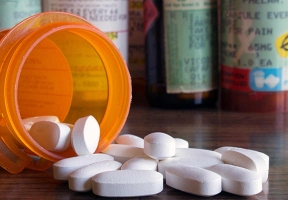

A health alert issued by CDPH late last night outlines details of a significant rise in opioid overdose deaths in Chicago from January 1 through May 31, 2020, with an increase in both opioid-related EMS responses and opioid-related overdose deaths when compared to the same time frame last year. There have been 472 opioid-related overdose deaths in Chicago so far, compared to 323 in January to May of 2019, an increase of 67 percent year over year. In May 2020 alone, there were 86 opioid-related deaths in Chicago, of which 18.6 percent identified as Latino, compared to only two deaths last month.
These alarming numbers are concerning for Esperanza Health Centers, a Federally Qualified Health Center that operates four primary care clinics on the Southwest Side, which serves a primarily low-income, Latino population. Esperanza has offered a Medically Assisted Treatment (MAT) program since 2016, combining counseling with medication that helps ease withdrawal symptoms and cravings. “Since the start of shelter-in-place, the number of new MAT patient intakes have dropped considerably,” says Evelyn Delgado, CADC, behavioral health care coordinator at Esperanza. “I’d say we’ve had about 1-2 new intakes between March and today. Our numbers, plus the figures issued by CDPH, really underscore the urgency of what we’re seeing in our communities.”
Esperanza’s MAT program relies on referrals from sources such as community organizations, inpatient programs, and hospitals. But because of COVID-19, those sources have not referred new patients to Esperanza. Adding the stresses of a pandemic to pressures of everyday life could be enough to lead people to use. “We’re currently thinking of new strategies to get patients the services they need,” says Daifeny Arias, LCSW, CADC, MAATP, behavioral health counselor and MAT program manager. “Not only has COVID-19 affected the way we do outreach, but it’s also affected the mental health of many who may unfortunately turn to using when experiencing anxiety, isolation, and depression. We can’t forget that one of the untold stories about COVID-19 is how it has further jeopardized the lives of people who struggle with substance use. These new numbers from CDPH make that tragically clear.”









